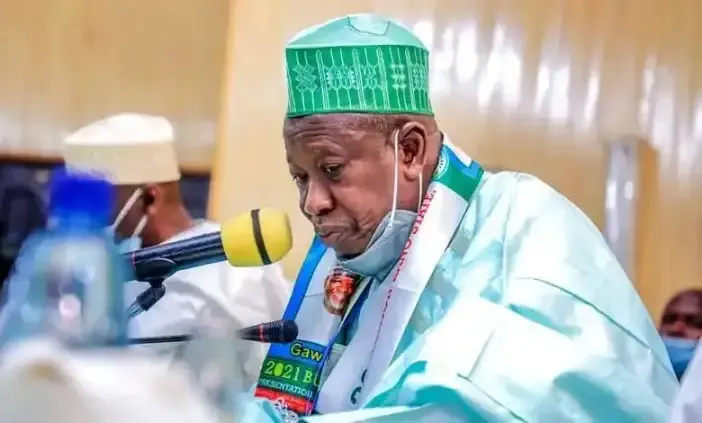By Ibrahim Babangida Lawal
abumaimoona2023@gmail.com
When Dr. Abdullahi Umar Ganduje, once a stout sentinel of President Bola Ahmed Tinubu’s vast political dominion, tendered his abrupt resignation as National Chairman of the All Progressives Congress (APC), the reverberations were felt far beyond the marbled corridors of the party’s headquarters. To the uninitiated, it may seem a trifling palace reshuffle — but for those who grasp the hidden gears of Nigerian politics, it may well portend the slow unspooling of a power tapestry Tinubu has spent decades weaving, thread by painstaking thread.
To dismiss Ganduje’s exit as a mundane routine is to misread the pulse of a system that feeds on symbols and secret signals. For years, Tinubu has worn the garb of master strategist — a political conjuror capable of corralling unruly factions, stitching up uneasy truces, and forging alliances out of stubborn adversaries. Ganduje, in this elaborate dance, was more than a mere figurehead; he was a gatekeeper, a trusted confidant, a loyal steward of the fragile unity that binds the APC’s quarrelsome ranks.
His sudden abdication, couched in whispers of festering discord and the quiet murmur of public discontent, leaves behind a vacuum that will not stay empty for long. Opportunists, long kept at bay by the sheer force of Tinubu’s patronage and Ganduje’s vigilance, now see a door ajar — and human nature being what it is, they are unlikely to knock politely before barging in.
Even more worrisome is the pattern that Ganduje’s departure reveals. One by one, seasoned lieutenants — men and women who once toasted Tinubu’s triumphs in smoke-filled backrooms — are slipping through his grasp. Some leave by resignation, some by subtle expulsion, others by political irrelevance that feels like an exile in slow motion. Each departure chips at the façade of invincibility that has long protected Tinubu from the cold winds of Nigeria’s unforgiving political arena.
The cruel truth is that politics here is not merely about policy but perception. It is theatre, it is rumour, it is the lingering suspicion that power, once thought unassailable, may be as mortal as the hands that clutch it. When kingmakers begin to look mortal, the courtiers start to whisper. And when the whispers swell into murmurs, the palace intrigue is never far behind.
Ganduje’s exit, therefore, is more than a resignation letter tucked into a file. It is a signal, a flare fired into the night sky to embolden hidden dissenters who have long waited for a sign that the emperor’s robes might be fraying. If these tremors gather force, Tinubu may soon find himself marooned in a palace alive with conspiracies, where loyalty is fickle and betrayal is the common tongue.
Yet to pronounce Tinubu politically moribund would be premature folly. This is a man who has weathered storms fierce enough to drown lesser politicians without so much as a backward glance. He knows how to recalibrate, to trade one circle of loyalists for another, to cut losses and spin fresh alliances out of yesterday’s rivals. But even the most seasoned tactician cannot outwit an internal implosion forever if the fault lines keep widening.
In the end, Ganduje’s resignation may well be recorded as the first fissure in a once-mighty fortress — or perhaps just another chapter in Tinubu’s long story of improbable survival. But if the rumble beneath his throne grows louder, the self-styled kingmaker may find that the crown he so masterfully placed on his own head grows heavier by the day — and that the fiercest battles are not waged against opponents in the open square, but within the walls he once thought impregnable.
